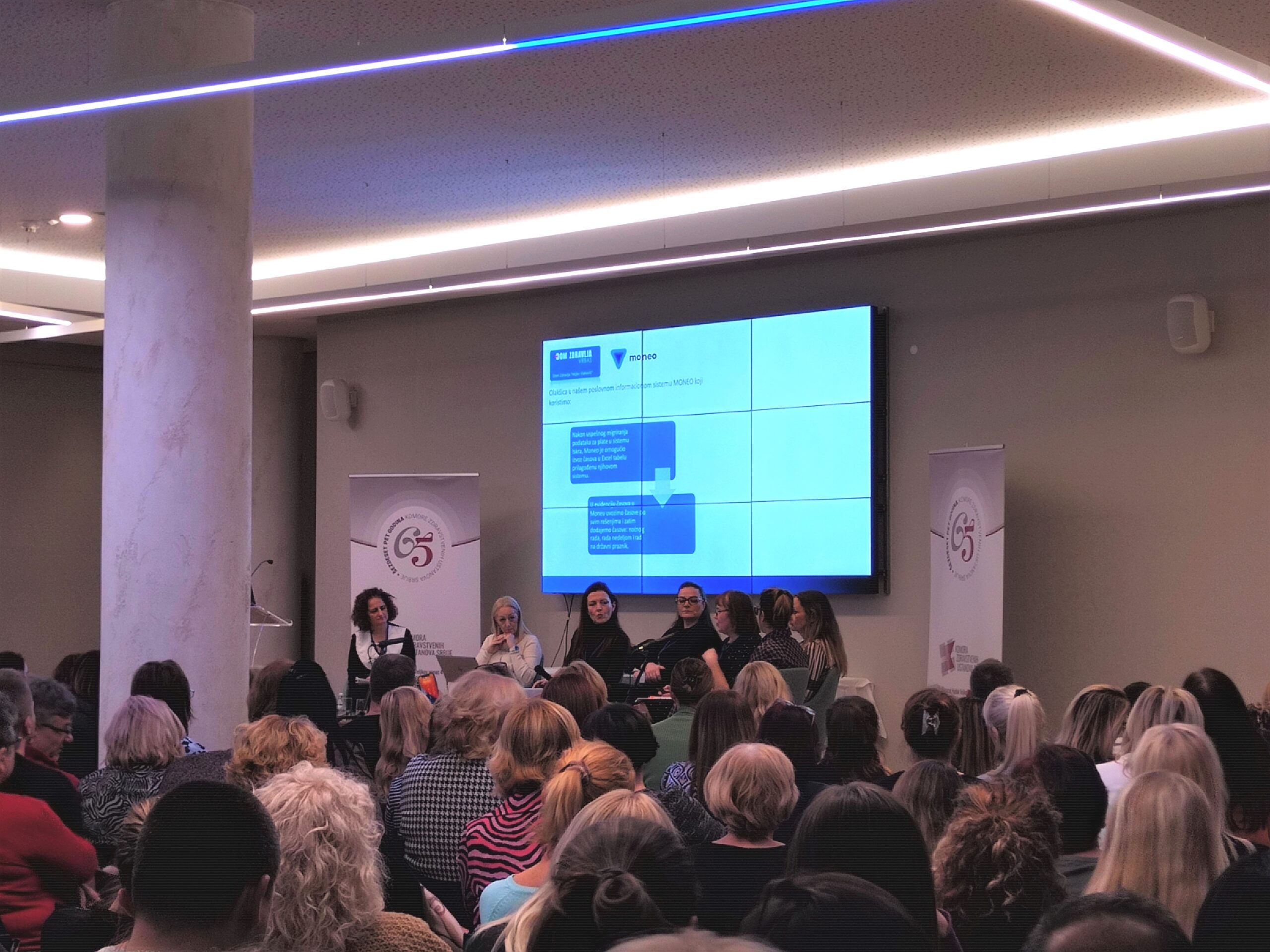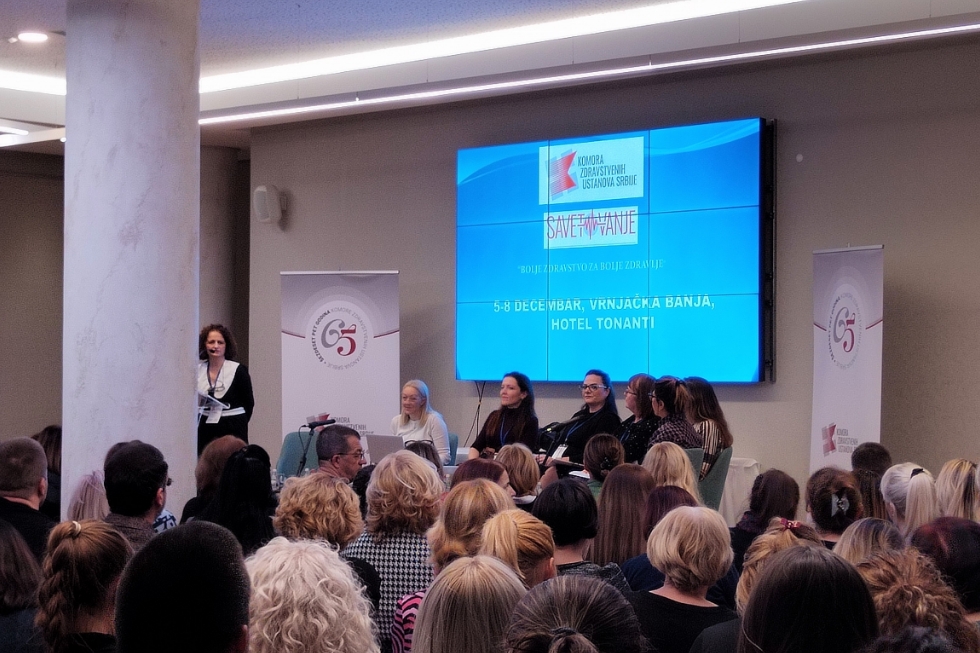The traditional winter counselling organized by the Chamber of Healthcare Facilities of Serbia was held on December 6, 7 and 8 in Vrnjačka Banja, under the name “Better healthcare services for better health”.
The counselling brought together more than 400 participants from all over Serbia who attended lectures on current topics related to the healthcare system during the three-day gathering. About 30 lecturers spoke about organizational, legal and financial issues in healthcare. The gathering was opened by PhD Georgios Konstantinidis, Chairman of the Board of Directors of CHFS, Snežana Rašić Đorđević, Director of CHFS and MD/PhD Dejan Stanojević, Chairman of the Assembly of the CHFS.
The session was held addressing the topic “Current issues in the Healthcare System in Serbia”, where representatives of the Ministry of Health, Republic Fund of Health Insurance and the Coordinating Body for Digitization delivered lectures. The session was also attended by MD/PhD Slobodan Milisavljević, director of UCHC Kragujevac and MD Aleksandar Čivović, Director of PHC Gornji Milanovac and Chairman of the Committee for the Primary Healthcare Level CHFS. This was followed by sessions on the finance portal, amendments in healthcare regulations and personnel, and representatives of the State Audit Institution talked about financial management and control.
Special attention was paid to the panel on the Iskra payroll system in the public sector. This topic was addressed by Nada Lekin and Ljiljana Manojlović, representatives of the Ministry of Finance, Slavica Vukobratović from the Clinical Centre of Vojvodina, Borka Nikolić, Jasna Stepanović and Jovana Živković from the University Clinical Centre of Serbia and Marina Bjelica, assistant director for economic and financial affairs of the PHC “Veljko Vlahović” Vrbas.

Panel “Iskra”: Experiences from practice and addressable issues
Bjelica spoke about the integration of the Iskra system and the business information system Moneo, as well as the experiences of working in the Iskra system. Iskra project presentation started with an online presentation in which all healthcare facilities of Serbia participated. The plan and activities on the project, which included data migration in three phases, were explained.
- Migration of personnel data
- Migration of average salaries in a period of one year
- Migration of salary data
After successfully migrating salary data in the Iskra system, Moneo facilitates the work by exporting hours to an Excel spreadsheet adapted to their system. The record of hours in the Moneo software includes hours based on all decisions, and additionally hours for night work, work on Sundays and work on public holidays.



Exporting hours from Moneo to Excel
Between the lectures, time was set aside for questions and discussion, when experiences and observations “first-hand” were exchanged. Unlike previous counselling sessions, this one gathered a larger number of representatives of healthcare facilities, who took part especially in panel discussions.
